Search Results
Showing results 1 to 20 of 20
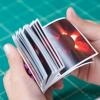
Solar Flare Flip Book
Source Institutions
In this activity, learners make their own flip book that shows real solar flares erupting from the Sun in November 2000. Step-by-step instructions are included with photos.

Nature Journals
Source Institutions
In this activity, learners construct a home-made journal with simple, everyday materials.

Arctic Sea Ice
Source Institutions
In this activity, learners explore how the area of Arctic sea ice has changed over recent years. First, learners graph the area of Arctic sea ice over time from 1979 to 2007.
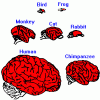
Jump to It!
Source Institutions
This is a quick and simple demonstration about reflexes (second activity on the page).
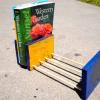
Bookshelf
Source Institutions
In this activity, learners use simple tools to build a bookshelf with a built-in bookend.
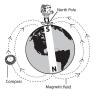
Dancing Compasses
Source Institutions
Learners use compasses to detect the magnetic field created by current moving through a wire. This is one of four activities learners can complete related to PhysicsQuest 2008.
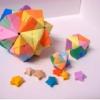
Paperfolding Polyhedrons
Source Institutions
In this activity (on pages 55-66 of PDF), learners fold paper into origami shapes and then combine several identical shapes into a three-dimensional structure.
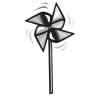
Magnet Powered Pinwheel
Source Institutions
Learners use the current flowing in a wire to create a magnetic field that turns a magnet. Learners can use this property of electromagnetism to build a magnet-powered pinwheel.
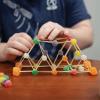
Building Bridges
Source Institutions
In this activity, learners explore the engineering design process and the basic mechanics behind building bridges as they build one themselves using gumdrops and toothpicks.
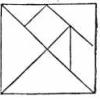
Tricky Tangrams
Source Institutions
In this activity (on pages 49-54 of PDF), learners play with tangrams, a set of triangles, squares and a parallelogram that can combine into a larger square as well as all sorts of other shapes.
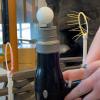
Bernoulli Obstacle Course
Source Institutions
In this activity, learners create their own obstacle course based on Bernoulli's Principle and try to get a floating ball from the start of their course to the finish line.
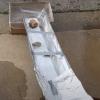
Build An Aqueduct
Source Institutions
In this activity, learners use the design thinking process to design and build their own aqueduct, or water bridge.
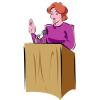
Eyewitness Game
Source Institutions
In this demonstration (9th on the page), learners explore eyewitness memory and how memories differ amongst individuals. While the rest of the group is minding their own business (i.e.
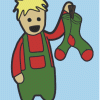
Divide and Conquer: Santa's Dirty Socks
Source Institutions
This activity introduces the idea of "divide and conquer" using a fictitious but serious problem--a pair of dirty socks has accidentally been wrapped in one of the presents that Santa is about to deli
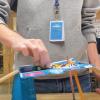
Build a Bridge
Source Institutions
In this activity, learners use design thinking to design and build their own bridge out of household materials including adhesives and/or connectors.

Disappearing Crystals
Source Institutions
Learners experiment with water gel crystals, or sodium polyacrylate crystals, which absorb hundreds of times their weight in water. When in pure water, the water gel crystals cannot be seen.

Shake It Up!
Source Institutions
Learners drop a magnet through a coil of wire to create electric current in a circuit. LEDs in the circuit allow learners to detect the direction of current flow.
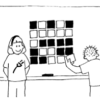
Card Flip Magic: Error Detection & Correction
Source Institutions
This magic trick is based on how computers detect and correct data errors.

Statue Display Tower
Source Institutions
In this activity, learners design, build, test and redesign a display tower that will meet a specific set of criteria and constraints.
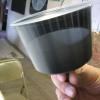
Mini Zoetrope
Source Institutions
In this activity (posted on March 27, 2011), learners follow the steps to construct a mini zoetrope, a device that produces an illusion of action from a rapid succession of static pictures.
